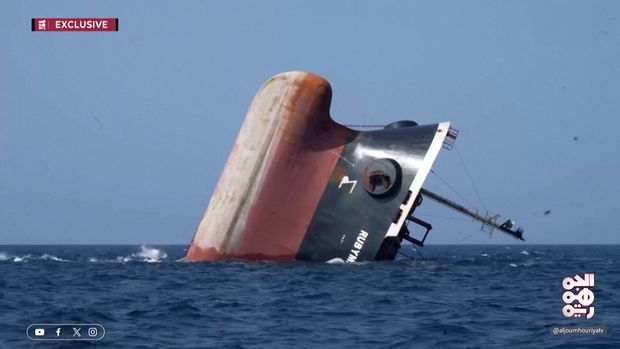On February 18th, 2024, the Rubymar, a British cargo ship, was sunk in the Red Sea by Houthi rebels, while carrying 21,000 metric tons of fertilizer. The Houthis are an Iranian-backed religious militant group in Yemen that the U.S. Department of State has declared a “Specially Designated Global Terrorist Group.” Since the early 2000s, the Houthis have been fighting the Yemeni government: in 2011, they forced Yemen’s president to hand over power, and in 2015, they took control of large parts of Yemen. They have attacked dozens of ships since November 2023.
The Rubymar, built in 1997 in Japan, was carrying a cargo of ammonium phosphate sulphate fertilizer from the United Arab Emirates to Bulgaria when two Houthi anti-ship missiles were launched at it. One of them struck the ship, causing severe damage. On March 2, 12 days after being hit, the Rubymar sank in the Bab el Mandeb Strait between the Horn of Africa and the Arab Peninsula.
The sinking has both economic and environmental consequences. Despite dropping its anchor after being struck by the missile, the Rubymar continued to travel 43 miles before sinking. Authorities believe that the dragging anchor caused damage to undersea internet cables, disrupting over 25% of internet traffic in the Red Sea area. According to a Deutsche Welle article titled “Houthi attacks in the Red Sea threaten internet infrastructure,” U.S. defense officials stated that the Rubymar “is likely to have cut the undersea cables that provide internet and telecommunications service around the world.”
The sinking of the Rubymar poses severe environmental impacts to the Red Sea and the world. The Yemeni government’s environmental protection agency warns of a “double pollution.” First, oil spilled into the Red Sea when the ship sank, creating an 18-mile-long oil slick. Second, and potentially more serious, are risks arising from the fertilizer cargo carried by the vessel. Because fertilizer is highly water soluble, as it leaks into the Red Sea it will likely cause severe harm to underwater organisms, fish, and coral reefs. The leaking fertilizer will cause nitrogen pollution and could lead to coral bleaching. Coral Bleaching is the expulsion of algae from corals, which causes them to lose their color and makes them incredibly vulnerable to death. According to a Nature article “Unraveling the different causes of nitrate and ammonium effects on coral bleaching,” reactive nitrogen is “pivotal in the physiology of coral bleaching.” Nitrogen pollution creates oxidative stress on coral reefs, which according to a Science Direct article “Impacts of nitrogen pollution on corals in the context of global climate change and potential strategies to conserve coral reefs,” “promotes growth of the phototrophic symbionts in corals, and induces phosphate starvation in these symbionts, which further impairs the symbiosis.” This oxidative stress deprives coral symbionts of phosphates which are necessary for their survival. When coral symbionts die, this can result in coral death, because coral relies on its symbionts for nutrients. The risk for Red Sea coral beds is that the nitrogen in the ammonium phosphate sulphate fertilizer may cause coral bleaching, causing the coral reefs to die. Further, an increase in nitrogen can also cause macroalgae growth and coral diseases. According to studies by the World Wildlife Fund, once coral reefs die due to coral bleaching, they “rarely return”.
The best hope for the future of the Red Sea would be to clean up the ammonium phosphate or to prevent further leaking. This will be difficult to impossible for any fertilizer that has already been dissolved in water. Discussions are underway to attempt to salvage the vessel. However this poses challenges given that it is now sitting on the bottom of the Red Sea Further, cleaning the wreck will be labor intensive and costly, and there is a fear that Houthis could attack vessels involved in salvage and cleanup efforts.


















